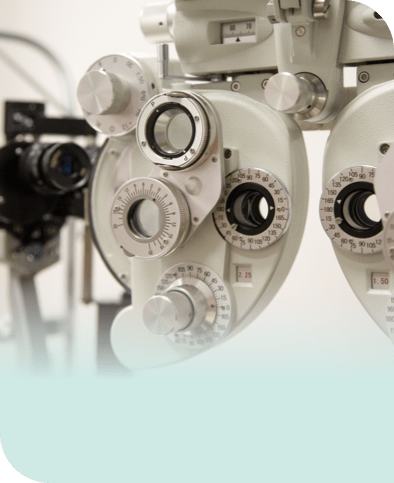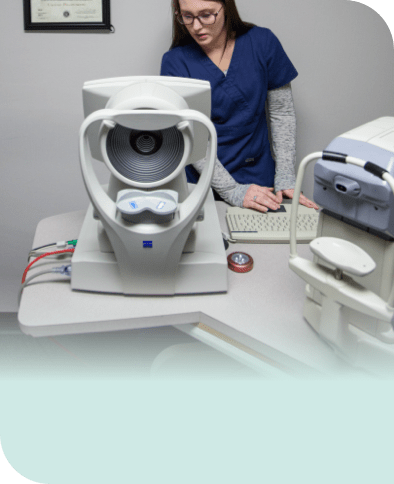Sunglasses aren’t just a fashion statement—they’re essential for protecting our eyes. However, when it comes to choosing the right pair, you need to make an informed decision. Sunglasses aren’t universal, and the pair you choose can have a significant effect on your quality of life when outdoors. So, are polarized sunglasses better for your vision, or is there something more to it?
Polarized sunglasses do provide clearer vision when you’re outdoors, but they don’t actually affect your visual acuity. Instead, they remove distracting glare and filter light as it enters the eye to make it easier for you to naturally see when wearing the glasses. However, that doesn’t always mean they’re better—there are many situations where non-polarized sunglasses are just as effective.
Why Are Sunglasses So Important?
Every time you’re in the sunlight, you’re exposed to ultraviolet (UV) radiation—the rays emitted by the sun. While the sun is beautiful, this radiation can be downright dangerous over the years.
Prolonged exposure to UV radiation can significantly damage the human body. Your eyes are remarkably sensitive, and they’re no exception to this. UV rays increase the risk of:
This is why sunglasses are so crucial. They’re a simple but effective way to lower the risk of these conditions. However, not all sunglasses are the same, and some are better for you than others.
Polarized vs. Non-Polarized Sunglasses
When you’re choosing sunglasses, you’ll likely notice that they’re primarily broken down into 2 key categories:
- Polarized
- Non-polarized
Each of these has its own benefits in different situations.
Polarized Sunglasses
Polarized sunglasses are designed with a special filter designed to reduce glare from reflected surfaces like water, snow, glass, and pavement. This filter blocks horizontally polarized light—the glare that occurs when light rays bounce off a reflective surface.
This is a key benefit to polarized sunglasses. Rather than seeing a blinding glare when you’re near the water or out for a walk, you can see clearly. Meanwhile, the lenses also enhance visual clarity by filtering light rays. This makes polarized sunglasses an excellent option when you’re:
- Driving in sunny conditions
- Fishing
- Hunting
- Skiing
- Swimming
These lenses make it much easier for your eyes since they don’t need to work as hard to accommodate glare.
Non-Polarized Sunglasses
Non-polarized sunglasses, on the other hand, don’t have this built-in filter. Instead, these sunglasses are primarily designed to protect against UV radiation and reduce the overall brightness of what you’re seeing. This doesn’t make them worse; they’re simply designed for other situations than their polarized counterpart.
One problem associated with polarized lenses is that it can make it more difficult to see screens clearly. The same feature that filters reflected light also filters other horizontal light, making it harder to see most digital surfaces. While this doesn’t affect many activities, it can be a problem if you’re relying on digital support while driving (like a built-in car display or speedometer.)
Meanwhile, non-polarized sunglasses don’t have this problem. While you may need to deal with reflected glare, you’ll still be able to see clearly and comfortably. If you’re looking for a general pair of comfortable sunglasses for when you’re spending time outdoors, non-polarized lenses may be ideal.
Does Polarization Affect Vision?
Polarized sunglasses can be an excellent boost for your vision when you’re outdoors. By filtering horizontal light waves, these glasses make it much more comfortable to spend time near water or pavement. Outdoor activities can become much easier, and you’re less likely to deal with eye strain due to the reflections.
However, it’s important to remember that these sunglasses don’t change your visual acuity—not in their standard form, at least. Polarized lenses simply make it easier for your eyes to clearly see in areas where glare is a problem.
There is good news, though; whether you’re looking for polarized or non-polarized sunglasses, you can always get them in prescription form to get the best of both worlds!
How to Choose the Right Sunglasses
Polarization can make a significant difference in your visual comfort. However, the polarization of the lens doesn’t guarantee 100% UV protection—instead, it focuses on glare.

When you’re trying to choose a pair of sunglasses, make sure you’re remembering UV radiation. Try to pick a pair that offers 100% UV protection—there should be a sticker, a label, or a tag that indicates whether or not the sunglasses offer this feature.
While polarization can affect your comfort, protecting your eyes is crucial, and you should always try to make sure you’re not putting yourself at unnecessary risk.
Where to Buy Polarized Sunglasses
The right pair of sunglasses can make all the difference in the world. Whether you’re looking for a pair of polarized or non-polarized sunglasses, our team at Moses Eyecare Center can help. Book an appointment with our team today, and let’s work together to find you the perfect pair!













